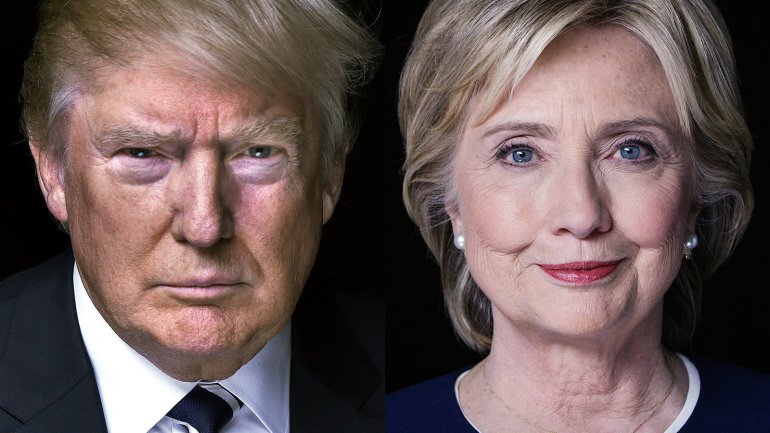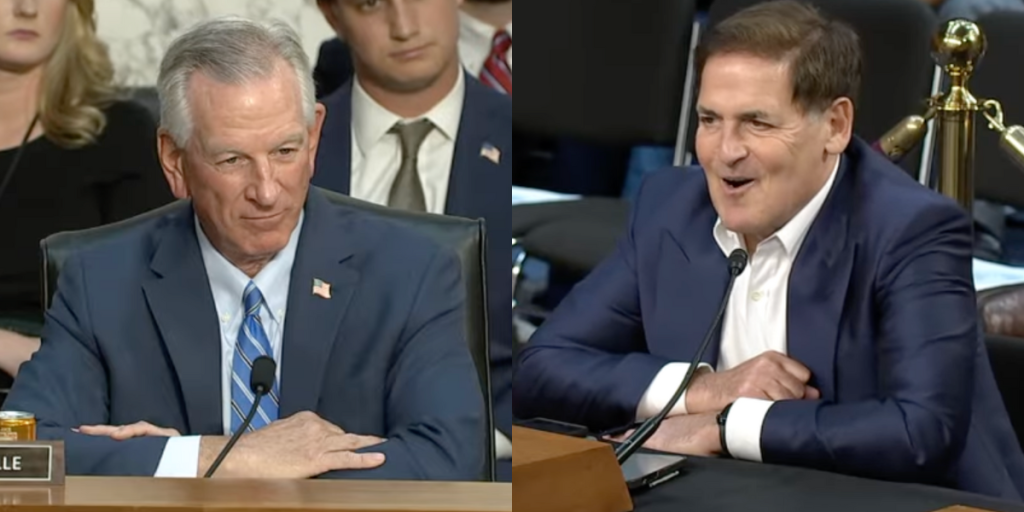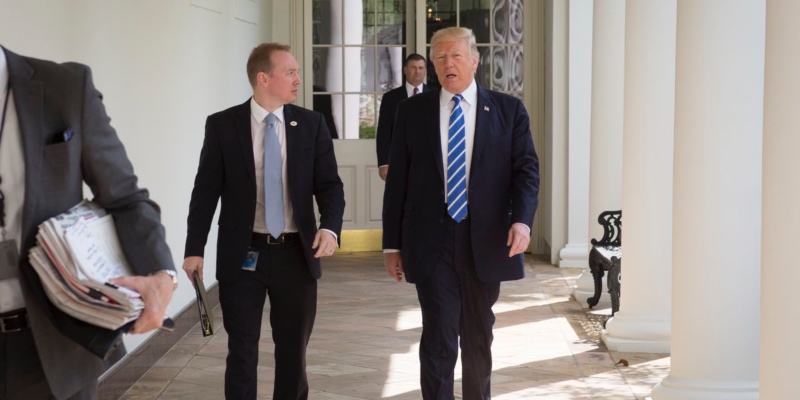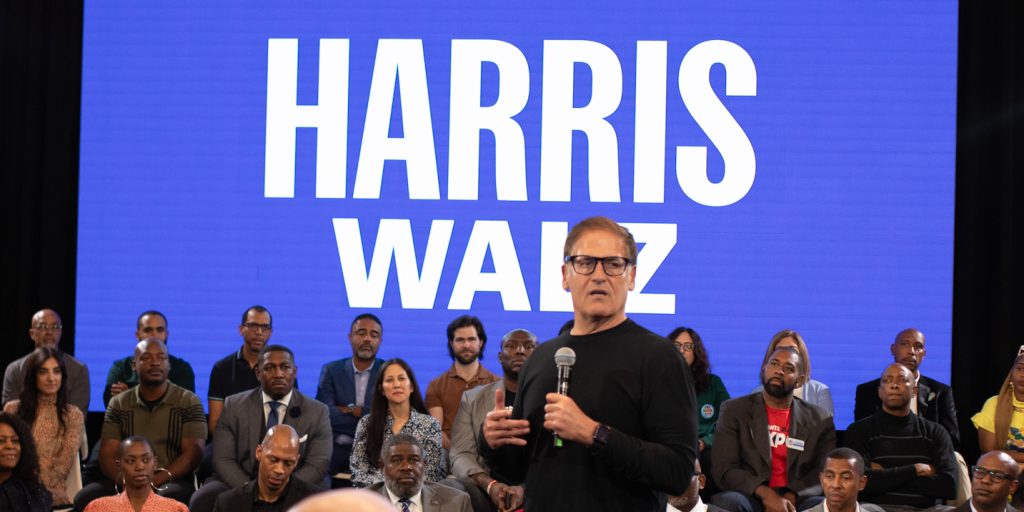Subscribe to the Yellowhammer Radio Podcast on iTunes. Learn more about Jeff Roberts’ private wealth advisory practice at JeffRobertsAndAssociates.com.
Billionaire Hillary Clinton supporter Mark Cuban predicted Wednesday that “the market [will] tank” if Donald J. Trump is elected president, and while he did not offer any evidence to support his prediction, Mr. Cuban revived a long-running debate over which Party is better for investments.
Birmingham, Alabama-based financial guru Jeff Roberts, who was recently named to Barron’s® 2016 “Top 1,200 Advisors: State-by-State Ranking,” came on Yellowhammer Radio Tuesday to break down the historical data.
“The single most common question I have heard in the last month or two when clients come in is ‘how will the presidential election impact markets?” Roberts told host Cliff Sims. “There are a couple things investors need to remember. First, the president doesn’t really determine those market returns. Markets are highly complex — they have a lot of moving parts — so just a presidential election or a Party probably does not have a huge impact. The policies seem to matter more than the presidential Party itself, and policies are tied more heavily to the composition of Congress, probably more so that the presidency.”
Data Mr. Roberts gathered from the Wells Fargo Investment Institute shows how little the Party holding the presidency seems to change the trajectory of financial markets. In fact, the historical data is so inconclusive, it is actually different depending on whether we start measuring on Election Day, or wait until Inauguration Day.
If we argue that a president-elect’s impact on the market begins on Election Day, with the markets anticipating what he will do once in office, historical data says Democrats average a 9.22% return in their first year, while Republicans only average an 8.11% return. However, if we argue that a president’s impact on the market doesn’t really begin until the day he takes office, Republicans outperform Democrats 8.59% to 8.33%. Those numbers are based off of market returns from 1856 to 2014, a 158-year period.
Mr. Roberts then went a step further and gathered data on how the markets perform under different scenarios of presidential and congressional control.
“For example, back when Democrat Bill Clinton was president and Republicans, led by Newt Gingrich, controlled the House,” he explained, “they balanced the budget and paid down debt and we had a technology boom, and the markets performed tremendously well.”
The two scenarios that produce the highest returns historically are when a Democrat is president and Congress is under split control, and when Republicans have full control of the presidency and both chambers of Congress.
Here are the average annual inflation-adjusted total returns for the S&P 500 Index, depending on the Party composition of the executive and legislative branches:
Presidency / Congress / Market Performance
Democratic / Democratic / 8.35%
Democratic / Split / 11.26%
Democratic / Republican / 9.99%
Republican / Democratic / 7.92%
Republican / Split / 2.25%
Republican / Republican / 10.75%
In one final calculation, Mr. Roberts researched how the markets perform, depending on which Party is transitioning out of controlling the presidency, and which Party is transitioning in.
Here’s what he found:
| Presidential transitions | Average annual real total return | Number of times since 1856 |
| Democratic to Republican | 6.6% | 9 |
| Republican to Democratic | -1.5% | 8 |
| Democratic to Democratic | NA | 0 |
| Democratic re-election | 10.5% | 8 |
| Republican re-election | 11.7% | 9 |
In summary, Mr. Roberts said the data is fascinating to look at, but probably does not provide any actionable insight.
“The S&P index returns during Democrat and Republican administrations is of no value to investment making decisions,” he concluded. “In our opinion there’s just nothing about it that tells you buy or sell. There is no clear forecast for investors to use when benchmarking history. There’s interesting data, it’s fun to look at, but I don’t think it causes anyone to adjust their portfolio… Vote, but don’t let your politics affect your portfolio.”
Check out Jeff Roberts’ full interview on Yellowhammer Radio in the video above. For more information on his private wealthy advisory practice, visit JeffRobertsAndAssociates.com.
RELATED: Alabama financial pro gives fascinating insight into what presidential race means for investments













